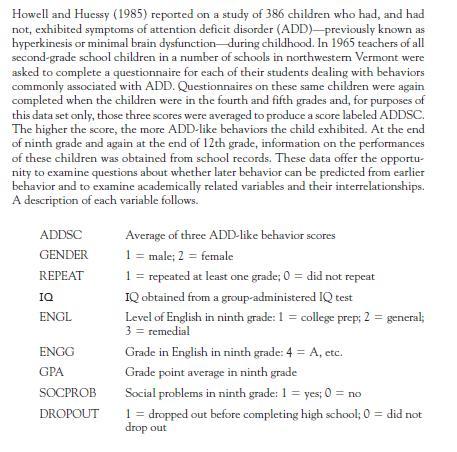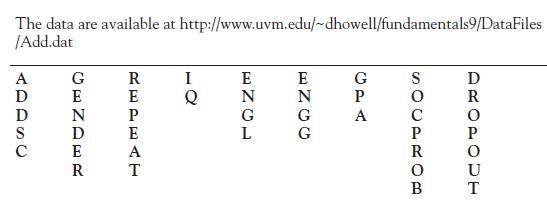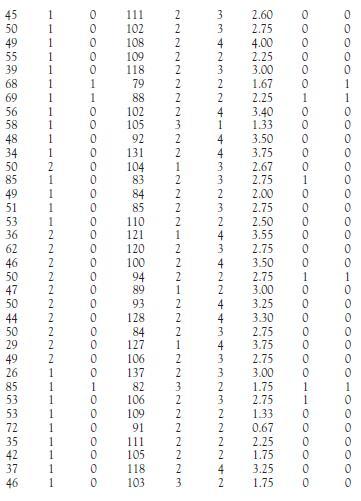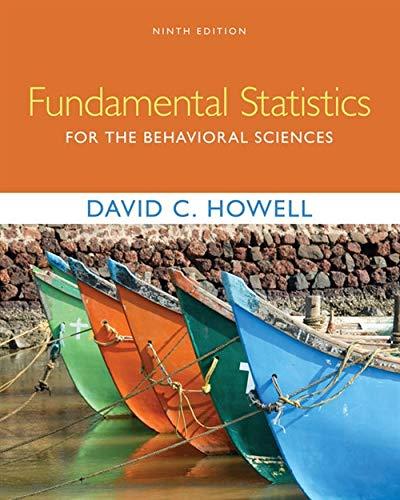Question:
Create a stem-and-leaf display for the ADDSC score in Add.dat, again using any available software.
Refer to a large data set in Appendix D. The data can also be downloaded from the Web at https://www.uvm.edu/~dhowell/fundamentals9/DataFiles/Add.dat These data come from a research study by Howell and Huessy (1985), which is described at the beginning of the appendix. We will refer to them throughout the book.



Transcribed Image Text:
Howell and Huessy (1985) reported on a study of 386 children who had, and had not, exhibited symptoms of attention deficit disorder (ADD) previously known as hyperkinesis or minimal brain dysfunction during childhood. In 1965 teachers of all second-grade school children in a number of schools in northwestern Vermont were asked to complete a questionnaire for each of their students dealing with behaviors commonly associated with ADD. Questionnaires on these same children were again completed when the children were in the fourth and fifth grades and, for purposes of this data set only, those three scores were averaged to produce a score labeled ADDSC. The higher the score, the more ADD-like behaviors the child exhibited. At the end of ninth grade and again at the end of 12th grade, information on the performances of these children was obtained from school records. These data offer the opportu- nity to examine questions about whether later behavior can be predicted from earlier behavior and to examine academically related variables and their interrelationships. A description of each variable follows. ADDSC GENDER REPEAT IQ ENGL ENGG GPA SOCPROB DROPOUT Average of three ADD-like behavior scores 1 = male; 2 = female 1 repeated at least one grade; 0 = did not repeat IQ obtained from a group-administered IQ test Level of English in ninth grade: 1 = college prep; 2 = general; 3 = remedial Grade in English in ninth grade: 4 = A, etc. Grade point average in ninth grade Social problems in ninth grade: 1 = yes; 0 = no 1 = dropped out before completing high school; 0 = did not drop out










